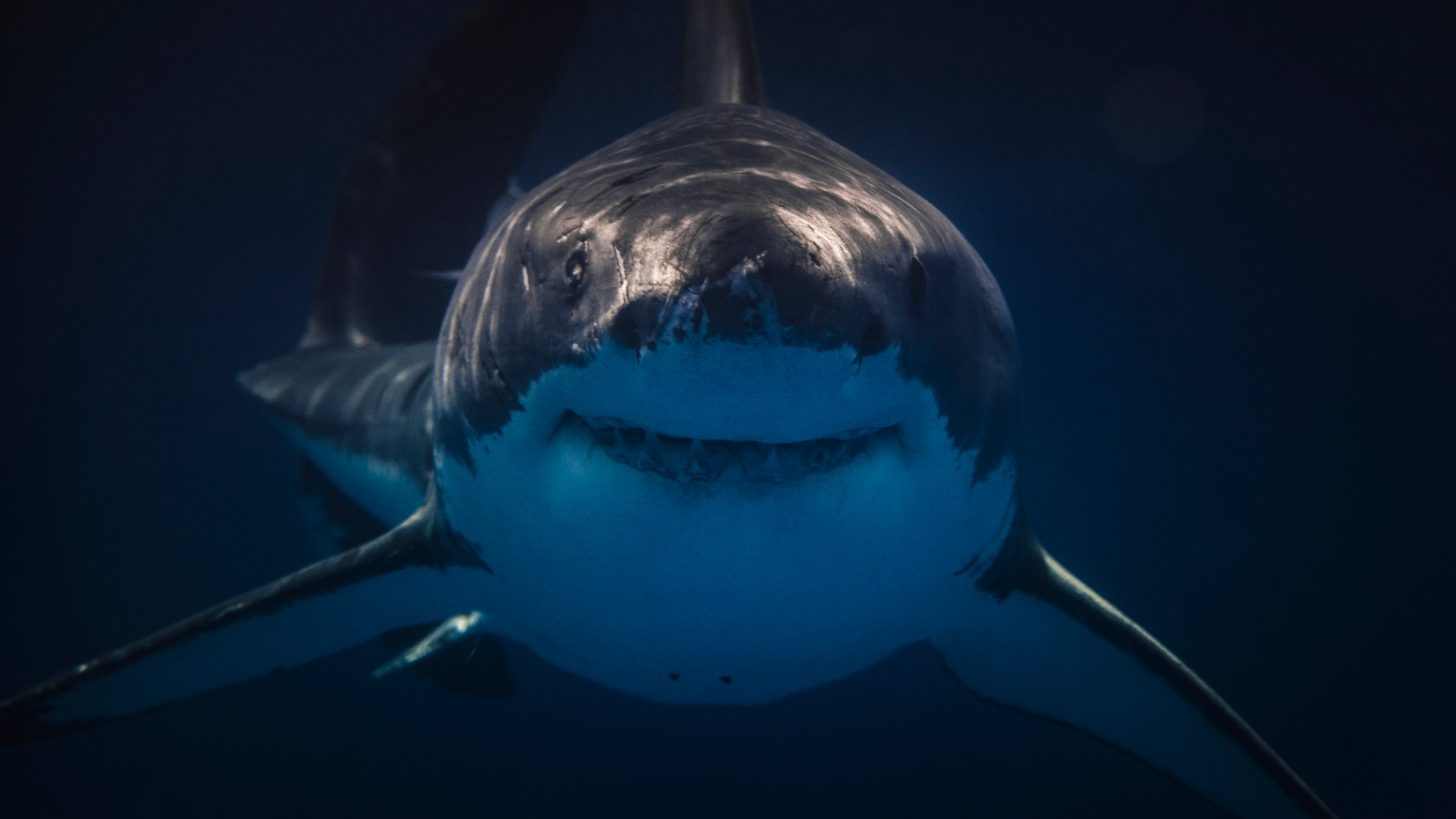
Large marine predators including great white sharks regularly spend time in the ocean's twilight and midnight zones, far beneath the depths at which they feed, in a discovery that has mystified scientists.
In a new study, data from 12 species of large predatory fish, including sharks, billfish and tunas showed they regularly spent time in the mesopelagic zone — also known as the twilight zone —. which stretches between the depths of 656 and 3,280 feet (200 to 1,000 meters). They were also seen in the midnight zone, 3,280 to 9,800 feet (1,000 to 3,000 m) beneath the ocean surface.
"How, when, where they access the deep ocean certainly varies, but the clear anecdotal answer is that the deep ocean seems like an important habitat — regardless of the predator species," Camrin Braun, study lead and an assistant scientist at the Woods Hole Oceanographic Institution (WHOI), told Live Science. "It's clear there are good reasons for these animals to dive deep, otherwise why would they all do it?
As part of the study, published Nov. 6 in the journal PNAS, researchers matched the diving patterns of 344 electronically tagged predatory fish, including great white sharks (Carcharodon carcharias), tiger sharks (Galeocerdo cuvier), whale sharks (Rhincodon typus), yellowfin tuna (Thunnus albacares) and swordfish (Xiphias gladius) with shipboard sonar over a cumulative period of 46,659 days to identify which species regularly deep dive to the twilight and midnight zones.
Related: Watch great white shark get mobbed by gang of seals in 'incredible and surprising' footage
Their findings showed a correlation between dives and the location of the deep scattering layer (DSL). This ocean layer is so densely packed with small fish and other marine organisms it is sometimes mistaken for the seafloor. Creatures of the DSL rise up to the surface at night to feed, then sink back down to the twilight zone in the day.
This suggests marine predators feed on animals in the DSL. However, the team also discovered many dive far deeper than the DSL extends, for reasons unknown. Great white sharks dive as deep as 3,700 feet (1,128 m), whale sharks to 6,300 feet (1,912 m) and swordfish as far as 6,500 feet (2,000 m).
"There's good evidence for some species/situations in which diving deep is clearly for foraging," Braun said. "So that supported our expectation. However, we also find several cases where we can pretty definitively say the use of the deep ocean is not for feeding — or if it is it represents a totally different kind of predator-prey interaction or mysterious prey resource."
The evidence also suggests the twilight zone has been overlooked as a critical habitat for large predator species, the researchers said. Many of the species inhabiting the twilight zone are fished commercially, and steps need to be taken to understand and protect this potentially critical ecosystem.
"If it turns out that there is indeed more biomass in the twilight zone than in all current marine capture fisheries combined then it's possible to imagine a kind of mesopelagic 'gold rush' to catch and use this biomass," Braun said. "There are many 'ifs' in this chain and many issues in making mesopelagic fishing feasible BUT it seems that biomass may be important for predators. Therefore, we really need to better quantify those links between predators and mesopelagic biomass before we can sustainably harvest/use those resources.”







